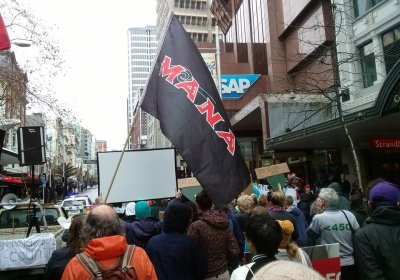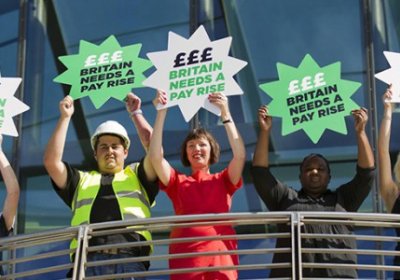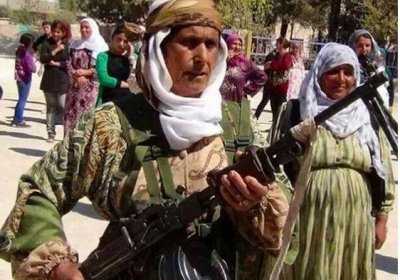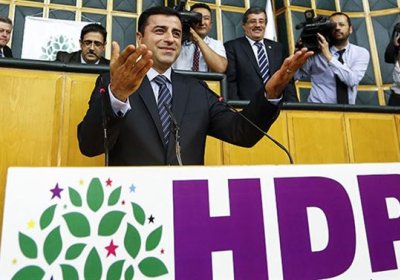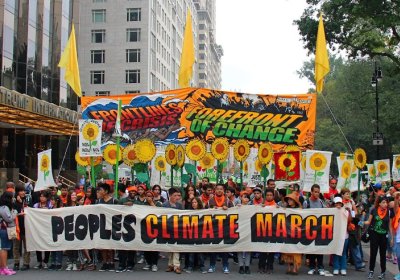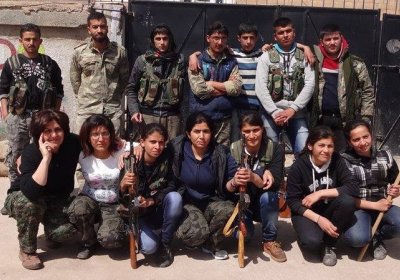Cables from the first term of Ecuadorian President Rafael Correa show how the US sought to defend the interests of US companies in Ecuador, and protect the position of foreign investors in general. Moves against the power of transnational corporations by Correa's government, first elected in 2006, were seen as attempts to increase control over the economy, which the US government views as the domain of private interests. The US Embassy in Quito therefore tried to influence Ecuadorian economic policy in conjunction with allies from other embassies and from within the private sector.
World
In her previous books The Shock Doctrine: The Rise of Disaster Capitalism (2007) and No Logo: No Space, No Choice, No Jobs (2000), Canadian author and activist Naomi Klein took on topics like neoliberal “shock therapy,” consumerism, globalisation and “disaster capitalism”.
Klein extensively documented the forces behind the dramatic rise in economic inequality and environmental degradation over the past 50 years.
On September 24, one day after the United Nations climate summit in New York once more failed to come up with any form of serious action to confront the climate crisis, Filipino socialist group Party of the Labouring Masses released the statement below.
* * *
Philippines President Benigno Aquino concluded his United Nations speech in New York on September 23 by posing the question: What more can we do?
The question is rhetorical, even hypocritical, as the president well knows what needs to be done: to address the demands of the mass movements, which he has heard, but not heeded.
Staring down scandals related to revelations in a recently published book, Dirty Politics, and revelations of mass government surveillance, incumbent Prime Minister John Key led his right-wing National Party to become the first party with an outright majority in parliament since the current electoral system was set up in 1996.
The Labour opposition, however, slumped to about 24% of the vote ― its worst result ever.
“Britain needs a pay rise!” That was the main running theme through this year’s annual congress of the Trades Union Congress (TUC) of England and Wales, which covers 6.2 million workers in 58 unions in England and Wales, held in Liverpool from September 7 to 10.
Its key demand ― for a £1-an-hour wage rise across the entire public sector ― was the main factor behind the successful July 10 public sector general strike.
As a deal to resettle refugees from rich Australia to Cambodia, one of the poorest countries in the world, was signed in Phnom Penh on September 26, poor Cambodians displaced from their villages as a result of land-grabbing by powerfully connected developers, youth, monks and civil society activists marched on the Australian embassy.
Among these protesters was Pisey Ly, an activist with Social Action for Change (SAC), who was interviewed by Green Left Weekly.
Besieged since September 15, the northern Syrian Kurdish-majority city of Kobane (whose Arabic name is Ayn al-Arab) has mounted a heroic, all-out resistance to the murderous Islamic State gangs.
As of September 25, despite the superior heavy weaponry deployed by the IS, it appears that fierce resistance and determined counter-attacks have halted or slowed the assault. Nonetheless, the IS has pushed closer to the city centre than ever before and the situation remains perilous.
With the US and allied nations, including Arab countries, carrying out air strikes in Syria, the Turkish government is trying to convince the West it does not support the Islamic State (IS) forces the US is targetting.
Newly elected President Recep Tayyip Erdogan (the former prime minster) linked the adjective “terrorist” with “IS” for the very first time on September 23 during a US TV interview while attending the United Nations climate summit.
“Turkey will do whatever needs to be done to stop this terrorist organisation, militarily, and politically,” he said.
The largest demonstration to date on the need to stop global warming was held in New York City on September 21.
It was the largest of the global demonstrations in more than 160 cities that day ahead of a United Nations climate summit held on September 23 in New York.
The historic protest brought together a wide range of groups and individuals in a march through Manhattan, two days before heads of states gathered to discuss the issue.
After two years of campaigning, Scotland’s independence referendum has ended. It saw victory for the No side, the opponents of independence with 55% backing compared to 45% who backed a Yes to independence.
The referendum saw an unprecedented level of engagement and debate throughout Scotland. This was reflected in the huge and unprecedented turnout of 84.59%, reversing the trend of recent decades of dwindling poll turnouts. Some rural areas even recorded 100% turnout.
United States President Barack Obama pledged on June 30 that in the face of Republican intransigence on immigration, he would take executive action to ease the plight of undocumented immigrants facing deportation.
On September 6, the White House announced that it would delay any action until after the November midterm election.
Cristina Jimenez, managing director for United We Dream, an advocacy coalition for immigrants largely made up of young Latinos, said: “The President’s latest broken promise is a slap in the face of the Latino and immigrant communities.”
Since September 15, the city of Kobane in the Kurdish-majority liberated area of Rojava in northern Syria has been under intense attack by the murderous forces of the self-styled "Islamic State (IS)".
In July, Kobane (Arabic name: Ayn al-Arab) was besieged by 5000 IS thugs armed with US heavy weapons seized from the disintegrating Iraqi army. The defenders managed to hold out and inflict a heavy defeat on the IS gangs. But this time the attack appears far more serious.
- Previous page
- Page 393
- Next page


